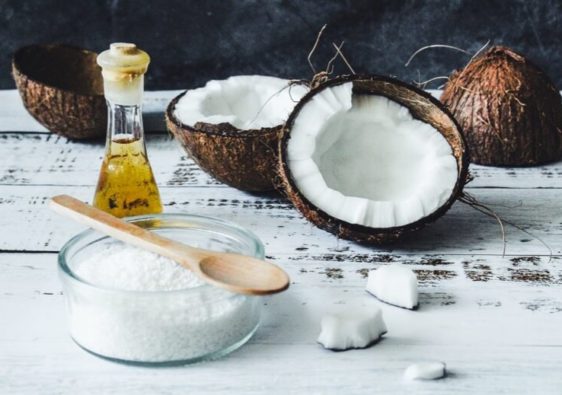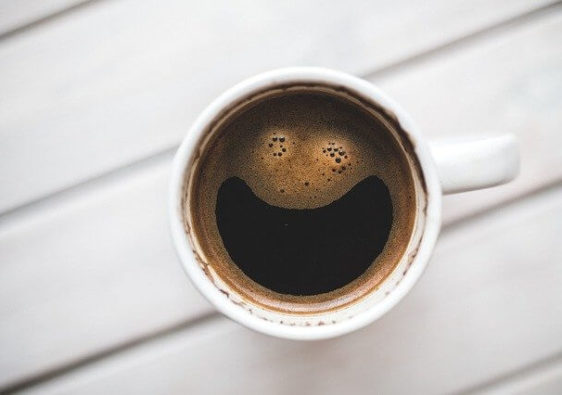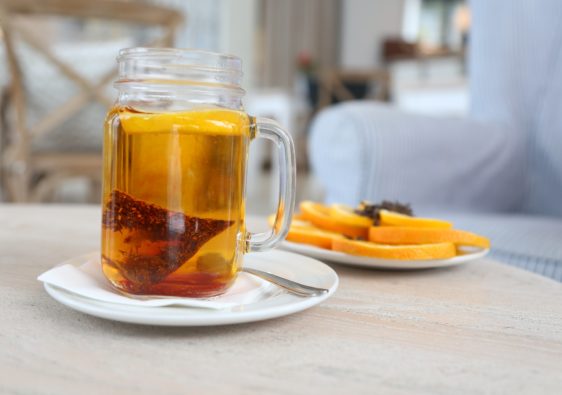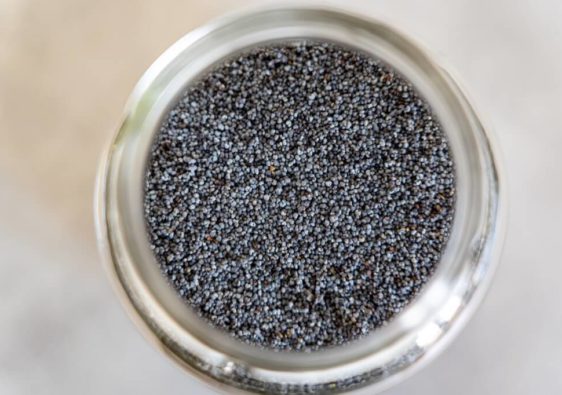Bloating is essentially trapped gas in the intestines. It is usually very uncomfortable and painful. It can also be embarrassing because it pushes your stomach out and can certainly affect confidence.
I’ve struggled with painful bloating for many years and tried all sorts of remedies. My stomach would look as if I was pregnant. I have managed to win the fight with a change of lifestyle. Bloating is a sign that something isn’t running smoothly, don’t ignore it.
Let’s fix it.
WHAT CAUSES IT
The common factors that can cause bloating are:
- imbalance of good and bad bacteria in the gut
- poorly absorbed fermentable foods/carbohydrates which contain
lactose (dairy), fructose (fruit), fibre (grains, legumes, etc) and sugar alcohols (sweeteners)
- accumulation of air and gas during and after eating or when chewing gum
- stress and anxiety
GIVE YOUR DIGESTION A BREAK
Bloating is more prevalent after eating. When you eat, your body releases gas which can become trapped and painful. Bloating happens when large amounts of gas and air build up in the gastrointestinal tract.
What you eat and how you eat matters.
The first and obvious solution to prevent bloating would be to practice intermittent fasting. Taking a break from eating allows your food to be properly digested. Do not drink carbonated drinks or chew gum when fasting as this will produce more gas and air swallowing leading to bloating.
Doing a 24 hour water fast will give your digestion a break and will help re-balance your gut microbiome.
This mice study showed a 24 hour fast boosted regeneration of intestinal stem cells. As we get older, our intestine stem cells become slower at recovering but it would appear that a 24 hour fast could slow down the ageing of these cells. More human studies are needed to confirm this,
Intermittent fasting (IF) gave me such needed relief from bloating that it became one of my biggest motivators to continue. Before IF I used to eat fruit for breakfast not realising that the sugar and fibre would cause havoc in my belly. This is the main reason why I don’t recommend breaking a fast with fruit, learn from my mistakes. I also include a regular 24 hour fast once a week. It keeps my gut happy.
CAREFUL WITH THESE FOODS
Foods that are high in indigestible fibre (plant foods) can cause excessive gas. You may have heard that eating more fibre helps with constipation and bloating.
This study concluded that such advice is purely a myth.
Eating a diet high in certain types of plant foods can in fact be the root cause of your bloating.
Foods to watch out for:
- apples, oranges, melon,
- onion, garlic,
- broccoli, cabbage, cauliflower,
- beans, lentils
Other foods that readily ferment in your colon and may cause trapped gass are;
- dairy (if you’re lactose intolerant),
- fructose (fruit sugar)
- and sorbitol (sugar alcohol)
Bloating happens when these foods are not properly digested in your small intestine and are moved to the colon to be fermented by gut bacteria.
I used to eat a high carb low fat diet and I suffered unbearable bloating pains. When I started introducing more protein and healthy fats into my diet and paying attention as to which plants bloat me, my digestion has completely changed. I choose to avoid beans, lentils, broccoli and even apples.
FEED YOUR GOOD BACTERIA
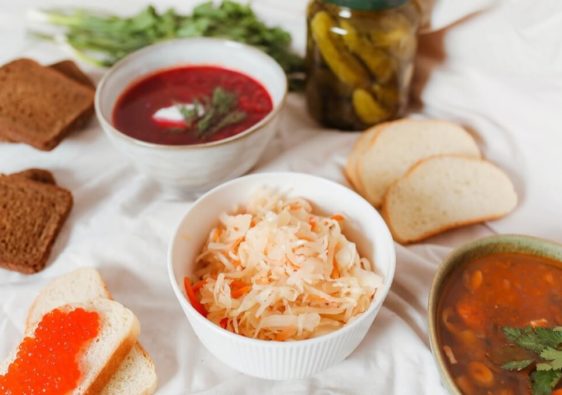
Your gutmicroflora (gut microbiome) is like a garden. It has a life on its own with around 500 species of living bacteria you must take care of. If you feed it the wrong foods and keep overloading it with sugar, fizzy drinks and all sorts of junk, it will eventually turn against you and cause you bloating and pain.
Even the minor changes or disturbances in your gut microbiome can significantly influence your gut function and cause bloating.
Focus on cultivating your gut “garden”.
Feed your good bacteria with probiotics:
- sauerkraut, kimchi, kefir, miso, kombucha, tofu, aged cheese, plain yogurt, pickled vegetables
Include these in your diet daily.
You could consider taking a good quality probiotic supplement which should include strains of both Lactobacillus and Bifidobacterium. Take it right before a meal, so technically when you break a fast, as to calm and prepare your stomach for food.
Foods containing probiotics have become the staple of my diet. My favourite way to break a fast is with kefir or sauerkraut. I feed my friendly bacteria first, then I feed my belly.
GINGER & PEPPERMINT
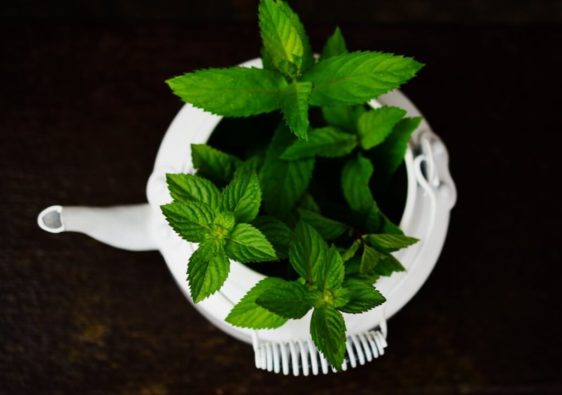
A ginger supplement will do you the world of good. Among its amazing benefits, ginger has been shown to help break up and expel intestinal gas. Peppermint oil capsules have also been shown to improve digestion.
Alternatively, you can drink ginger or peppermint tea, although not as potent as supplements, may still deliver good results. Fennel tea is another traditional remedy used to prevent bloating.
Feel free to drink these during your fasting window or/and after dinner.
SUMMARY
1. practice intermittent fasting
2. try a 24 hour fast
3. observe how you react to certain plants
4. avoid sugar alcohol, fizzy drinks, chewing gum
5. include probiotics in your diet
6. enjoy ginger or peppermint tea
7. please don’t stress about it, you can fix it xox
